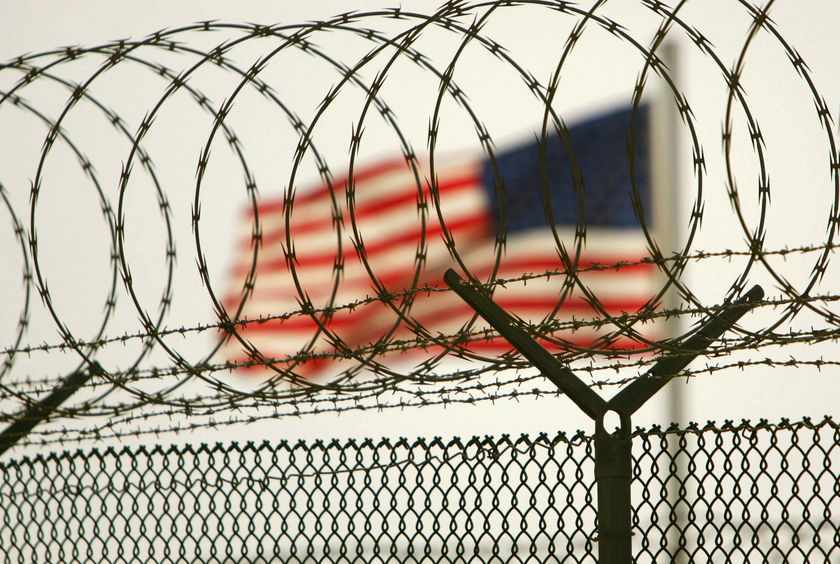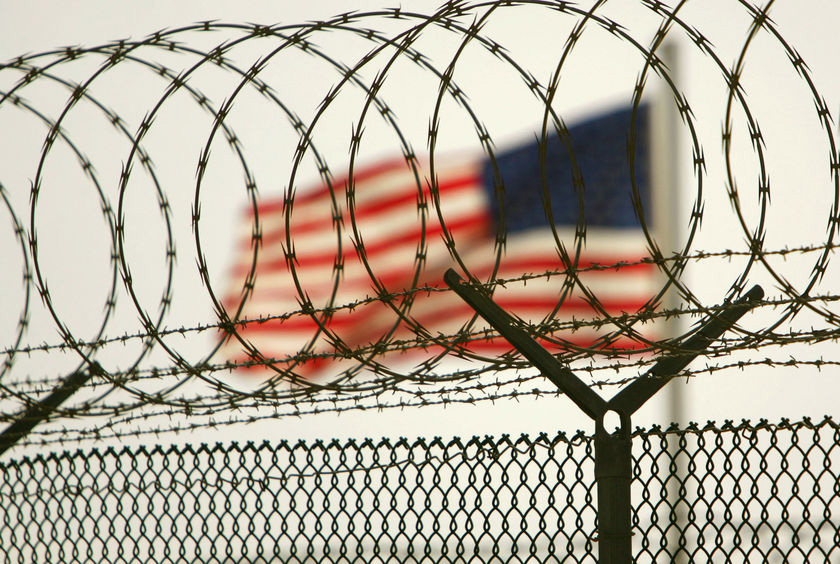
Jun 25, 2015 | News
While welcoming the recent momentum towards finalizing the drafting of a new Constitution, the ICJ said that the Constituent Assembly in Nepal must ensure strong and effective protections for all human rights, consistent with its international human rights obligations.
In addition, they also must ensure that the drafting process is fully inclusive and participatory,
After seven years of political impasse, the devastating earthquake of 25 April 2015 provided Nepali political leaders an opportunity to restore public faith in public authority by reinvigorating the constitutional process.
The country’s four major political parties have now apparently reached agreement on some previously contentious issues and developed a fast-tracked process for the adoption of a new democratic Constitution.
“The horrific earthquake and the government’s response to it has led to a renewed sense of urgency about finalizing and adopting a Constitution that will help create a stable, representative government structure in Nepal consonant with rule of law principles”, Sam Zarifi, ICJ’s Asia director. “The country’s political leaders have a unique responsibility, and opportunity, to adopt a strong, progressive and human rights-compliant constitutional text”.
International law and standards require meaningful public consultation through a transparent and inclusive process. However, the lack of transparency in the current fast-tracked process, combined with the accelerated timeframe, risks undermining people’s ability to participate effectively in the development of the Constitution.
“None of Nepal’s previous Constitutions were the result of meaningful consultation and public participation”, Zarifi said. “The current government must take immediate steps to consult and ensure the participation of all stakeholders, including marginalized groups and minorities”.
The new Constitution must serve to implement the full range of human rights guaranteed under international law. Specifically, while drafting the new constitution, the ICJ urges the Government of Nepal to ensure, among other things, that:
- The new constitution guarantees all of Nepal’s international human rights obligations;
- Permissible limitations on human rights and provisions derogating from rights during emergencies in the new Constitution comply with international human rights laws;
- There is no impunity for gross violations of human rights and serious violations of international humanitarian law committed during the armed conflict, and criminal law is applicable to acts committed at the time;
- The right to effective remedies and reparation for all human rights is recognized;
- Economic, social and cultural rights are recognized as justiciable; and
- Judicial independence is reinforced.
Contact
Nikhil Narayan, ICJ Senior Legal Advisor (Kathmandu), t: +977 9851061167; Email: nikhil.narayan(a)icj.org

Jun 24, 2015 | Advocacy
The ICJ joined more than 100 organizations in endorsing a call before the UN Human Rights Council for accountability of US officials responsible for torture and enforced disappearances in the rendition and secret detention programmes and for reparations to be provided for the victims.
The call was made by the American Civil Liberties Union, the Centrol de Estudios Legales and Sociales, Conectas Direitos Humanos, and the Washington Office on Latin America.
The statement can be downloaded here:
USA-HRC29ShortOralStatementTortureRendition-Advocacy-2015-ENG (short version, in PDF)
USA-HRC29StatementTortureRendition-Advocacy-2015-ENG (full text in PDF)
USA-HRC29StatementTortureRendition-Advocacy-2015-SPA (full text in PDF, Spanish)
USA-HRC29StatementTortureRendition-Advocacy-2015-ARA (full text in PDF, Arabic)

Jun 16, 2015 | News
The ICJ deplores the decision of the Cairo Criminal Court to confirm the death sentences for over 100 persons following a grossly unfair trial.
The ICJ is calling upon the Egyptian authorities to desist from carrying out the executions and to provide an effective remedy for the human rights violations.
On 16 May, the Cairo Criminal Court had already recommended deaths sentences for more than 120 accused persons.
Today, having received the opinion of the Grand Mufti of Egypt (whose secret, non-binding opinion must be sought in all death sentence cases before they are confirmed) the Cairo Criminal Court confirmed the death sentences of more than 100 accused, including former President Mohamed Morsi and numerous other senior officials from the outlawed opposition group, the Muslim Brotherhood.
“Egypt must immediately end the imposition of mass death sentences and halt all executions of all individuals sentenced to death following unfair trials,” said Said Benarbia, Director of the ICJ’s Middle East and North Africa Programme.
“Egyptian judges are once again contributing to egregious violations of the right to life instead of protecting against, preventing and punishing arbitrary deprivation of life,” he added.
The sentence was imposed following convictions on various charges in two separate cases, including “murder”, “carrying out acts that compromise the independence of the country”, “abduction of police officers”, “collusion with a foreign organization to carry out terrorist activities in Egypt” and “carrying heavy weapons to resist the Egyptian state”.
As previously noted by the ICJ, the trial of the convicted persons violated numerous basic fair trial guarantees.
Many of the accused were denied access to counsel during detention, with some being held incommunicado for months.
Defendants had rights of defence violated, including denial of the right to call and to cross-examine witnesses.
The accused were convicted despite a lack of substantial and credible evidence of proof beyond reasonable doubt of the individual guilt of each accused.
Furthermore, the accused will not have the opportunity to have their conviction and sentence reviewed by a higher tribunal.
Under Egyptian law decisions of felonies courts can only be challenged before the Cassation Court, which examines the proper application of the law by the lower court only and cannot review the merits of the case.
This decision is one of a string of cases in which mass death sentences have been meted out against perceived opponents of the regime. Other cases are ongoing.
The Cairo Criminal Court is currently hearing the “Ansar Beit Al Maqdis” case in which more than 200 accused are charged with serious crimes, including the murder of 50 police officers, the attempted assassination of the interior minister and espionage on behalf of the foreign organization Hamas.
According to one of the defence lawyers, the majority of the accused were held incommunicado for between four and six months and were denied access to counsel.
Information allegedly extracted using torture and other ill-treatment has been relied on as evidence in court. If found guilty, the accused could be sentenced to death.
Egypt has carried out the death sentence against at least 12 people in 2015 despite calls by the African Commission on Human and Peoples’ Rights to refrain from carrying out the death penalty.
The recent issuance of mass death sentences in the country has been condemned by UN human rights experts, who called them “a profound disgrace”.
The ICJ opposes the use of the death penalty in all circumstances as a violation of the right to life and a form of cruel, inhuman and degrading punishment.
The UN General Assembly has called repeatedly, by a large majority, for all retentionist States to impose a moratorium on the use of the death penalty, with a view to abolishing the practice. The ICJ urges the Egyptian authorities to heed this call and desist from carrying out further executions.
Contact:
Alice Goodenough, Legal Adviser of the ICJ Middle East and North Africa Programme, tel: 44 7815 570 834, e-mail: alice.goodenough(a)icj.org
Nader Diab, Associate Legal Adviser of the ICJ Middle East and North Africa Programme, tel: 41 229 793 804, e-mail: nader.diab(a)icj.org
Egypt-Morsi confirmation of sentence-News-Press release-2015-ENG (full text of press release, Arabic)

Jun 8, 2015 | News
While the constitution of Pakistan’s first National Commission for Human Rights is welcome, the Commission risks being toothless unless its powers are extended to investigate human rights violations allegedly committed by the security agencies, the ICJ warned today.
The ICJ was informed that members of the National Commission for Human Rights were notified on 20 May 2015, three years after the National Commission for Human Rights Act was passed in June 2012.
“The establishment of a national human rights commission is a much-needed step for the promotion and protection of human rights in Pakistan,” said Sam Zarifi, ICJ’s Asia Director. “But for the new Commission to be able to assist the people of Pakistan, who face tremendous violations of their rights in terms of civil, political, social, economic, and cultural rights, it must be able to address the conduct of the country’s powerful military and security agencies.”
Under the National Commission for Human Rights Act, the Commission’s powers include investigating human rights violations, suo motu or on petition; visiting detention centers to ascertain the legality of the detention of detainees and ensure detainees are treated according to law; reviewing and suggesting amendments to Pakistan’s constitutional and legal framework on human rights; making recommendations for the effective implementation of international human rights treaties; and developing a national plan of action for the promotion and protection of human rights.
The law provides that while inquiring into complaints under the Act, the Commission shall have all powers of a civil court, including summoning and ensuring attendance of witnesses, receiving evidence on affidavits; and discovery and production of documents.
However, the Commission’s mandate is very limited where the armed forces or security agencies are accused of committing human rights violations, the ICJ says.
The law specifically states that “the functions of the Commission do not include inquiring into the act or practice of the intelligence agencies”.
Where the armed forces are accused of human rights violations, the Commission is only authorized to seek a report from the Government and make recommendations.
“The Commission’s restricted mandate over the armed forces, and especially the intelligence agencies, is of grave concern given that Pakistan’s military and intelligence services are accused of perpetrating gross human rights violations, including enforced disappearances, extrajudicial killings, and torture and ill-treatment,” Zarifi said. “A human rights commission that does not have jurisdiction over abuses by these actors risks being toothless and ineffective – and worst, a cover for continuing government inaction in response to these violations.”
“With these exceptions in place, it seems questionable that the Commission will get accreditation by the International Coordinating Committee of NHRIs, which is a requirement for a National Human Rights Institution to be recognized internationally,” he added. “The Pakistani government should ensure that the Commission complies with international standards so it can help protect and promote the rights of all people in Pakistan.”
Additional Information:
Justice (r) Ali Nawaz Chohan was appointed as the Chairperson of the Commission. Other members include one representative from each province; one representative each from the Islamabad Capital Territory and the Federally Administered Tribal Areas; the Chairperson of the National Commission on the Status of Women; and a member belonging from a religious minority community.
The UN Principles relating to the Status of National Institutions (Paris Principles) provide the minimum standards required by national human rights institutions to be considered credible and effective, and get accreditation by the International Coordinating Committee of NHRIs. Section 3 (a) (ii) of the Paris Principles states that a NHRI should have the power to hear a matter without higher referral over “any situation of violation of human rights which it decides to take up”.
Section 4 of the National Commission on Human Rights Act, 2012, provides the following procedure for appointment of members of the Commission: the Federal Government invites nominations for commissioners through public notice; the Prime Minister and Leader of the Opposition scrutinize the nominations; and the Prime Minister and Leader of the Opposition forward three names for each member of the commission to a parliamentary committee for confirmation. The law provides that the parliamentary committee would comprise of two members of the National Assembly (lower house) and two members of the Senate (upper house) –with two members each from the government and two from the opposition.
Contact:
Sam Zarifi, ICJ Asia Pacific Regional Director (Bangkok), t: +66 807819002; e: sam.zarifi(a)icj.org
Reema Omer, ICJ International Legal Adviser for South Asia (London), t: +44 7889565691; e: reema.omer(a)icj.org

Jun 2, 2015 | E-bulletin on counter-terrorism & human rights, News
Read the 93rd issue of ICJ’s monthly newsletter on proposed and actual changes in counter-terrorism laws, policies and practices and their impact on human rights at the national, regional and international levels. The E-Bulletin on Counter-Terrorism and Human...









